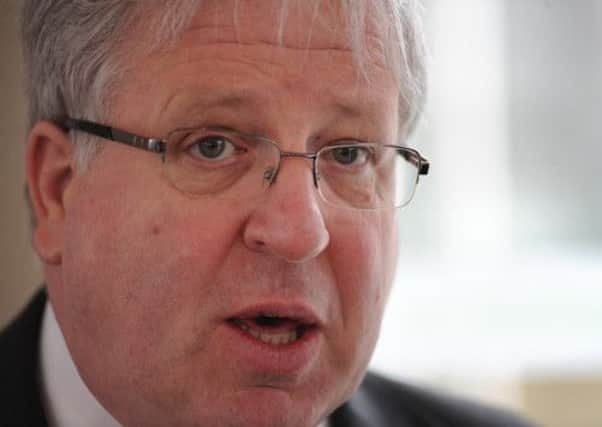Budget for HS2 increases by nearly £10bn


However Patrick McLoughlin warned opponents of the scheme that abandoning the plans could cost the economy £50bn in lost benefit and mean a lost opportunity for the North of England.
The new figure was revealed before a vote last night in which the Government’s flagship infrastructure project was dealt a blow as it was opposed by 37 MPs, 21 of them Tory backbenchers.
Advertisement
Hide AdAdvertisement
Hide AdThe Conservative rebels were joined by 12 Labour MPs, among them Huddersfield’s Barry Sheerman, who are opposed to the High Speed 2 rail line linking London to Birmingham, Manchester and Leeds with a track capable of carrying trains travelling at 250mph.
Ministers had brought their High Speed Rail (Preparation) Bill to the House of Commons for a second reading. The Bill allows the Government to spend money planning the route and buying up property along it.
But Tory backbencher Cheryl Gillan, Welsh Secretary until last September when she was sacked by Prime Minister David Cameron, tabled an amendment to the Bill calling on the legislation to be scrapped as she warned the project was “30 years out of date”.
With Labour supporting the coalition’s flagship infrastructure project, however, the amendment was defeated by 325 votes to 37, a Government majority of 288.
Advertisement
Hide AdAdvertisement
Hide AdEarlier it emerged that nearly £10bn more will be allocated to the project which could see the build on route rise to £42.6bn. With another £7.5bn set aside for trains, the total cost could exceed £50 billion.
Mr McLoughlin said the £42.6bn budget included a large contingency fund. The original budget had been about £33bn.
The HS2 line is set to link London to Birmingham by 2026. Two second-phase branches to Manchester and Leeds, through Sheffield, are planned by 2032.
Mr McLoughlin said: “I will be writing tomorrow to the chairman of HS2 to set a target price for the delivery of phase of the project. That is £17bn at 2011 prices. This takes account of the design and environmental changes to improve the scheme.
Advertisement
Hide AdAdvertisement
Hide AdHe added: “While I expect the final costs to be lower than those I have just outlined... this is the right way to plan the project.”
The increased costs are partly down to changes to the route, including a tunnel under the M6 at Birmingham.
Mr McLoughlin added: “It is very important we are seen as being able to compete with other countries in the global race to attract businesses to this country.
“I am going to be very open with the House and put all this into the (public) domain... I want to be as open as I possibly can.”
Advertisement
Hide AdAdvertisement
Hide AdThe Transport Secretary faced a series of questions from his own benches about compensation and mitigation and said he had “respect and understanding” for objections. But he defended the project as being essential for Britain’s future growth.
“The easiest thing in the world for the Government to do would be not to build HS2,” Mr McLoughlin said. “But the cost of doing that would be huge. It would be a cost in jobs – our modest estimates are HS2 will create and support 100,000 jobs, while the group of core cities predict HS2 will underpin 400,000 jobs, 70 per cent of them outside London.”
He said HS2 could bring £50bn of economic benefits once built adding “If we don’t go ahead with HS2, there will also be a cost in lost opportunities for the towns and the cities in the Midlands and the North. I’m not prepared to put up with a situation where you can get to Brussels on a high speed train line but not to Birmingham. Where you can get to Strasbourg on high speed trains but not to Sheffield. To Lille but not to Leeds. We cannot afford to leave the economic future of our great cities to an overcrowded 200-year-old railway.”
Shadow transport secretary Maria Eagle welcomed the plans. “Britain’s railways face a major capacity challenge in the years to come. We remain convinced that this project is essential. Doing nothing is not an option.”